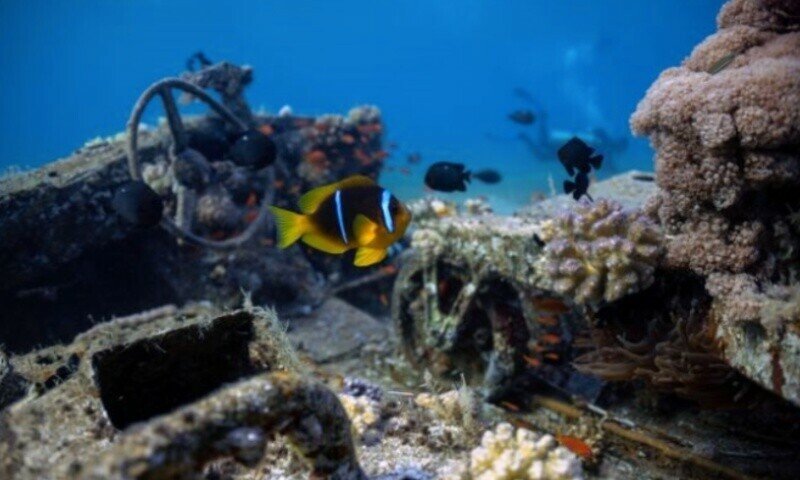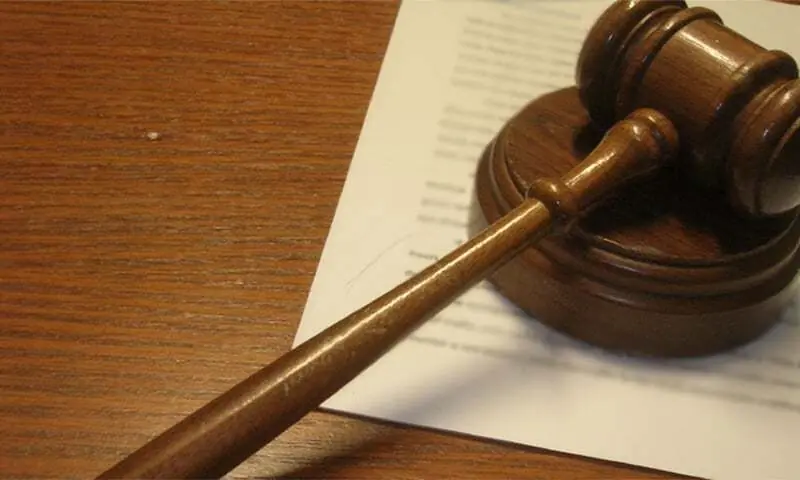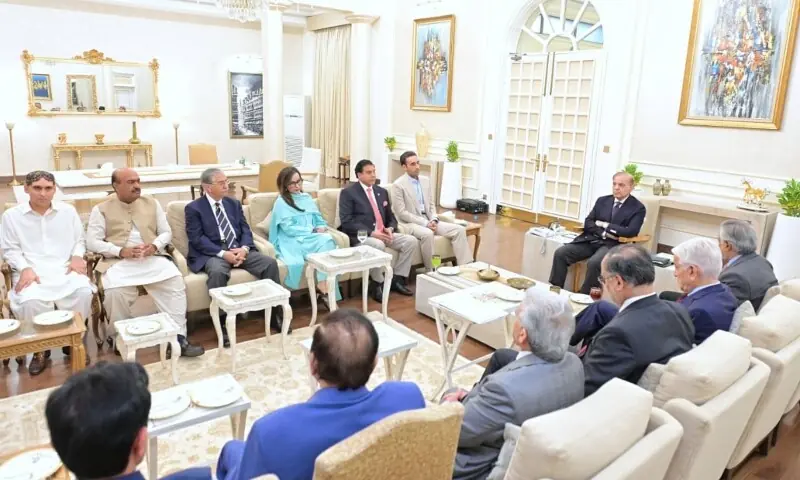Pakistan will become the first nation of southern Asia to ratify the 2001 UNESCO Convention on the protection of submarine cultural heritage (UCH), marking a significant step to safeguard its submerged maritime legacy, a statement from the Press Information Department (PID) said Friday.
In recent years, underwater cultural heritage has attracted the growing attention of both the scientific community and the general public. For scientists, it represents an invaluable source of information on ancient civilizations, maritime practices, human use of the land and marine environments and climate change, according to UNESCO.
The announcement was made by the Federal Minister of Maritime Affairs Muhammad Junaid Anwar Chaudhry during a meeting with the UNESCO representative, Dr. Cristina Menegazzi in Islamabad today. The two parties discussed the collaboration efforts to document, preserve and promote the rich underwater archaeological resources of Pakistan.
“Pakistan will become the first nation in southern Asia to ratify the 2001 UNESCO Convention on the protection of submarine cultural heritage (UCH), marking a significant step to safeguard its submerged maritime legacy,” the statement said.
Maritime archeology, a specialized discipline that explores the relationship between humans and water bodies through historical artifacts, is gaining prominence in coastal nations with rich nautical stories, according to the statement.
In the case of Pakistan, this includes shipwrecks, submerged landscapes, ancient maritime infrastructure, such as docks and headlights, and historical trade routes throughout the Arabic sea.
“We are committed to preserving our maritime cultural heritage and soon we will ratify the 2001 Convention,” said Minister Chaudhry in the statement.
“This will position Pakistan as a regional leader in the protection of underwater cultural heritage and strengthen our voice on international platforms on climate change and cultural preservation.”
The minister stressed the government approach in environmentally responsible exploration. “Any scientific activity in maritime archeology should be done in a way that respects and protects marine ecosystems,” said the minister.
“The use of non -invasive technologies such as television, ship -based observation and photogrammetry will be prioritized, while excavations will only be carried out under strict scientific guidelines.”
The statement added: “In line with efforts to preserve the submerged and coastal heritage, Chaudhry also requested UNESCO’s help to record historical maritime buildings in Karachi.
“These include structures of more than 70 years under the Ministry of Maritime Affairs, such as the Department of Marine Fishing and the iconic sea lighthouse. The minister proposed to establish a maritime historical museum to house and exhibit this coastal legacy.
“Unesco has valuable digital files and marine archaeological data from all over the world,” according to Chaudhry. “We want to collaborate in scientific research and the mapping of Pakistan underwater cultural heritage, which has been largely unexplored.”
The minister emphasized that Pakistan’s participation in this field will not only highlight his cultural wealth, but will also align with global efforts to combat climate change. He pointed out that submerged archaeological sites serve as key indicators of sea levels and climatic patterns, which offer information on environmental changes that affect coastal communities today.
“Dr. Menegazzi welcomed Pakistan’s intention to join the global community to protect underwater heritage and expressed UNESCO’s will to support technical and scientific cooperation in the area,” he reads in the statement.
Last year, the experts of the workshop sponsored by UNESCO in Mohenjo Daro said that although disasters cannot be stopped, preventive measures could be taken to reduce the risk of destruction to patrimonial sites, monuments and museums, and minimize the damage.
A UNESCO delegation has also previously asked the Government of Sindh to discuss the Shaikh Jiyo and others Makli World Heritage Tombs Project, which have been seriously affected by rains, floods and other natural disasters.








